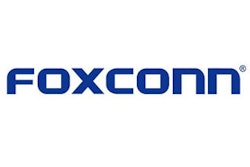PARIS (AP) -- The extent of the European car industry's troubles was laid bare Wednesday, when France's government tossed a financial lifeline to the continent's No. 2 automaker, Peugeot Citroen, and Ford said it would shut a plant in Belgium, cutting 9,500 jobs.
Experts say France's €7 billion ($9.1 billion) bailout, a three-year loan guarantee, represents a desperate attempt to avoid the sort of layoffs that companies like Ford are slowly accepting as inevitable.
The problem is the region's carmakers are selling too few cars in Europe, where the financial crisis has caused demand to dry up, and have too many factories. Even Germany's automakers, which had weathered the economic downturn relatively well, are not immune.
"The actions that should have been taken three years ago are starting to be put into place," said Tim Urqhart, senior analyst at IHS Automotive. "It speaks to the gravity of the situation and the seriousness of where things are."
In return for the Peugeot bailout, France's Socialist government asked for greater influence at the carmaker, including a government position and a workers representative on a supervisory board. That would help it avoid job cuts at a time when unemployment is stuck above 10 percent.
"My government has no intention of just giving, of offering a gift without anything in return," Prime Minister Jean-Marc Ayrault said on French radio station France Inter.
Peugeot, which says layoffs are key if the carmaker is to recover, faces a Nov. 15 deadline in its negotiations with the government over how to handle job losses.
It's the first French intervention in the industry since a €6 billion loan package to Peugeot Citroen and Renault in 2008-2009 when the economy was reeling from a financial crisis that triggered a global recession.
But the European car industry didn't undergo the dramatic overhaul that U.S. bailouts prompted among its carmakers. Peugeot Citroen has struggled since, and is especially vulnerable to the downturn in southern Europe, which makes up more than half its sales and shows no signs of emerging soon from widespread debt problems.
Ford, which expects to lose more than $1 billion a year in Europe, has been pursuing plant closures and layoffs more aggressively.
The company, which sells a quarter of its cars in Europe, announced Wednesday the closure of a car plant in eastern Belgium — one of its main European factories — by the end of 2014. It will result in 9,500 direct and indirect job losses.
"This is taking us by surprise and is an extremely bitter pill," Christian Democrat union representative Johan Lamers told The Associated Press in Belgium.
Fears were mounting that the axe may also soon fall in Britain as trade unions at Ford's Southampton plant have been called in for a meeting with management on Thursday.
Ford's move, which still must be negotiated with Belgian employee unions, is far swifter than anything General Motors has been able to accomplish in Europe during the most recent economic downturn. GM also wants to cut its factory capacity in the region and is in negotiations with unions to shutter a plant in Bochum, Germany, in 2017. GM's last factory closure in Europe was an Opel plant in Antwerp, Belgium, in 2010.
GM is also trying to consolidate costs with an alliance with Peugeot: They announced the joint development of four automobile lines to be released in 2016 on Wednesday, saying the alliance would save them $2 billion by 2017. The joint Peugeot- GM program will make a small van for GM's Opel and Vauxhall brands and serve as the basis for a compact crossover vehicle for Peugeot. They'll also develop a new, low-emissions small car and work together on mid-size cars and small vans.
But built into the alliance's four-year timeline is an assumption that the European market will soon bottom out.
"They have overcapacity and big dependence on the European market," Urqhart said.
And even France's latest plan is not guaranteed. European Union regulators generally frown on state intervention into industry, although during the 2008-2009 financial crisis they gave swift approval to France's previous bailout.
Joaquin Almunia, the European Union competition commissioner, said the EU has not yet been formally notified of the latest plan for Peugeot but said the governing body would assess it carefully. Peugeot's CEO Philippe Varin said the government guarantee was at market rates and he expected the EU to look favorably on it.
"The health of (Peugeot) is critical for France," Varin said.
Figures released Wednesday illustrated the problems Peugeot is facing. Sales fell 3.9 percent in the third quarter to €12.93 billion from €13.45 billion in the same period last year. Automotive division sales were down 8.5 percent, hurt especially by a weakening European demand and the suspension of deliveries to Iran. Sales increases in China and Russia shored up the company, as has the expansion of the GM alliance.
Peugeot's shares are down more than 60 percent since the beginning of the year, and dropped further on Wednesday. The company will offer no dividends for the term of the bailout, and executives will receive no stock options during that time.
"The main thing the government wants in return, it's really a change in governance" at Peugeot, said Najat Vallaud-Belkacem, the government spokeswoman.
Luxury carmakers such as Germany's BMW AG or Volkswagen AG's Audi brand have generally coped better than the mass market producers, but Daimler AG on Wednesday reported lower third quarter earnings and lowered its full-year outlook.
The maker of Mercedes Benz cars saw its net profit declining 11 percent to €1.20 billion ($1.6 billion) from €1.36 billion a year ago amid flat unit sales. The full-year operating profit outlook was lowered to €8 billion, down from last year's €8.8 billion.
In Italy, one of the worst-hit by the economic crisis, car sales have sunk to 40-year lows, hurting the earnings of another regional giant, Fiat, the owner of Chrysler. Its CEO, Sergio Marchionne, has abandoned a proposal to invest €20 billion in Italy because of weak demand and is expected to announce soon its plans for production at Italian plants that have been idled for weeks.
Robert Schulz, an analyst for Standard & Poor's who covers Ford and General Motors, said automakers in Europe are going to have to drastically adjust expectations to determine "what a new normal is" after six years of decline.
"Sales are going to be down in Europe," he said. "Whatever excess capacity they have is only going to get worse."
Tom Krisher in Detroit, David McHugh in Frankfurt, Juergen Baetz in Berlin, and Raf Casert in Brussels contributed to this report.






















